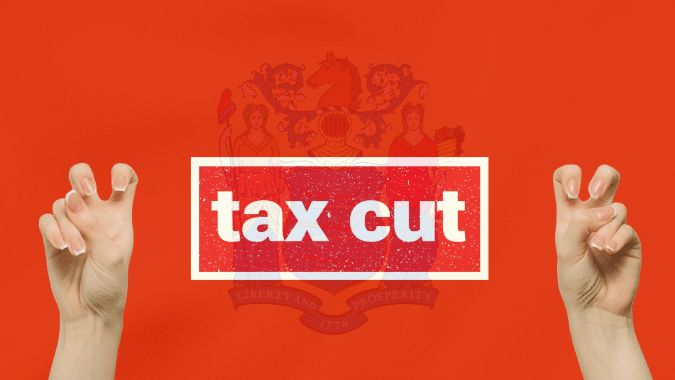In response to an NJBIA press conference this week delivering the impacts of his proposed Corporate Transit Fee, Gov. Phil Murphy had noted in an interview with News 12 that 80% of New Jersey corporations were getting a “tax cut” as part of his FY25 budget.
It’s a similar theme that has been echoed much more fervently by supporters of a new 2.5% surtax on companies earning more than $10 million to help fund NJ TRANSIT.
The problem is it’s not accurate.
“We can say that we’re happy that certain businesses are going to be paying a lesser rate for corporate taxes than in recent years,” said NJBIA President and CEO Michele Siekerka. “But to call it a ‘tax cut’ is unfortunately misleading.”
Previously, New Jersey businesses earning more than $1 million were paying a temporary 2.5% Corporate Business Tax surtax, on top of an already high 9% CBT rate.
“For years, New Jersey’s business community was told ‘you’re not going to have pay for that in the future,’ Siekerka said. “This temporary surtax was extended during COVID due to uncertain revenues at a time of long-term closures and restrictions.
“But that surtax, by statute, was supposed to sunset on Jan. 1 of this year. Governor Murphy committed to that sunset and said it was the right thing to do. The term ‘tax cut’ implies that some sort of gift has been given to these businesses when, in fact, they were overpaying for years.
“You can look at it as they were the ones actually giving the gift for longer than was original planned.”
Gov. Murphy shocked the business community with his FY25 budget proposal in February.
Just weeks after the sunset of the surcharge, he brought it back in the form of a ‘Corporate Transit Fee’ to approximately 600 companies – New Jersey’s largest job creators – and made it retroactive to Jan. 1.
While the governor called it a permanent tax at the time, he has since suggested that the $1 billion tax hike, if part of the final FY25 budget, may be temporary. But that is not set in stone.
“Unfortunately, the added $10 million revenue threshold of this new CBT tax is still very damaging in terms of our business competitiveness, our reputation, our investment and a huge negative for New Jersey residents, consumers and workers,” Siekerka said.
“While we understood that New Jersey was never going to be a state with a low corporate tax rate, we were hoping we could eventually achieve more balance through a further reduction of corporate taxes in future years – as Pennsylvania and many other states are doing. But right now, New Jersey is once again poised to have the highest corporate tax rate in the nation by far at 11.5%.
“We don’t believe that New Jersey needs to be an extreme national outlier for business taxes in order to fund NJ TRANSIT. We will continue to urge the Legislature to reject this proposal and point out that no business in New Jersey is getting a tax cut, at all.”

